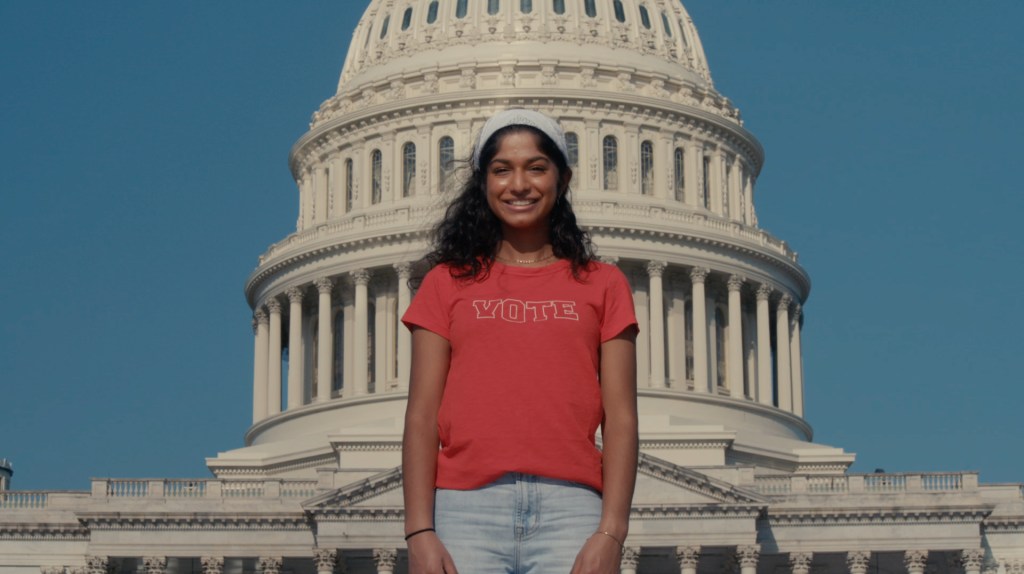Anoushka Chander won’t be old enough to vote this November. But that hasn’t stopped the 17-year-old high school senior from working as a lobbyist for voting rights, holding virtual meetings with congressional staffers — from a spare room in her parents’ house.
“A lot of people think of lobbying as a dirty word,” she says. But she’s not advocating for special interest groups; she’s pushing for legislation, like the Vote Safe Act and the Vote By Mail Act that protects the right to vote.
Videos by VICE
“I think it’s super important to vote because it’s the best way to have your voice heard in this country,” she says. “And unfortunately for so many communities, there has been historical suppression of the vote.”
Chander lobbied on Capitol Hill before the pandemic, and found more volunteers to help her at her school, Georgetown Day School in Washington, D.C., where she founded a group that aims to combat voter suppression.
“I started the Voter Mobilization Initiative through a group at my school called the Student Action Committee,” says Chander, whose parents are law professors. “It basically connects GDS students with local and national advocacy groups and advocacy opportunities and also educates and registers voters.”
Chander says they’ve signed up at least 70 high school students and are working to recruit more to work at polling places in D.C., Maryland, and Virginia in November. Her group is also advocating for Congress to pass the next COVID-19 relief package with election-protection funding and provisions.
“This is how we participate in our democracy,” Chander says. “And I think also for young people, starting to vote early is really a good idea because it creates a culture of voting. So it’s not just every four years you tune in for a presidential election. Every single time there’s an election of some sort, you are a civically minded voter.”
Chander’s group is bipartisan, but she got pulled into activism and politics through the heartbreak of watching her candidate lose in 2016.
“I remember just throughout the entire election cycle being so excited, like watching the DNC, watching Hillary Clinton accept the nomination for president, and then being obviously just devastated at the election results that came through.”
But when Chander attended the first annual Women’s March months later, it showed her that the fight didn’t end on Election Day. “I was like, wow, it’s amazing to be part of a community of people who are fighting for our rights continuously.”
Chander’s virtual activism will continue online in addition to her school’s virtual classrooms, when she begins her senior year in September. Despite not being able to physically attend meetings and lobby on the hill, she says the pandemic has opened up new opportunities for her group.
“All this virtual advocacy is a good way to make sure you keep tabs on your legislators,” she says. “We’re also able to have way more meetings than we probably would have had in regular time, because they’re just super busy if you try to go meet with them on the hill. But now, you’re meeting with staffers, who are also in their bedrooms on Zoom.”
As a lobbyist, Chander’s strategy is all about connecting to people, on three levels.
“The way I think what it’s like is it’s the head, the heart and the hands.” The heart, for the emotional connection; the head, for logic; and the hand, for action: “What are you doing for this?”
More
From VICE
-

WWE/WWE via Getty Images -

SpongeBob crossover content in The Sims 4 -

Timacoch/Getty Images

